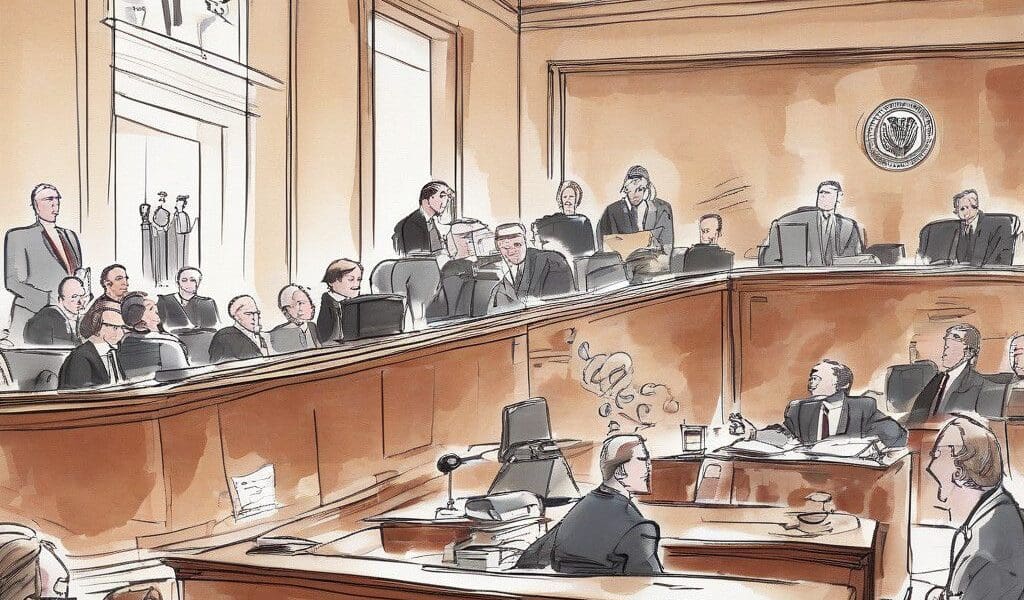US SEC Appeals Ruling on XRP Status: Implications for Cryptocurrency Regulation
The U.S. Securities and Exchange Commission (SEC) has recently announced its decision to appeal a significant court ruling concerning the status of Ripple Labs’ XRP token, a move that could greatly influence the regulatory landscape for cryptocurrencies in the United States. This action follows a landmark ruling by U.S. District Judge Analisa Torres in July 2023, which declared that XRP, when sold on public exchanges, does not qualify as a security. Consequently, approximately $757 million in XRP sales would not be subject to SEC regulations.
Background of the Case
The conflict between the SEC and Ripple Labs has been a focal point in discussions about cryptocurrency regulation. The SEC has maintained that various cryptocurrencies are securities and thus fall under its jurisdiction. Ripple Labs, on the other hand, argues that XRP functions as a currency and should not be classified as a security. This disagreement embodies broader debates about the nature of cryptocurrencies and the need for regulatory frameworks.
In the decisive ruling, Judge Torres determined that XRP’s sale on exchanges did not meet the criteria for securities as outlined by the Howey Test, which is used to assess whether certain transactions qualify as investment contracts. The implications of her ruling were significant: if XRP is not a security, it could pave the way for other cryptocurrencies to argue against SEC oversight.
Response from Ripple Labs
Ripple Labs has welcomed the initial ruling, viewing it as a validation of their long-held position regarding XRP. CEO Brad Garlinghouse expressed his frustration over the SEC’s decision to appeal, labeling it as “misguided” and “infuriating.” He emphasized confidence in the legality of XRP’s classification, suggesting that this ongoing legal battle is far from over.
The potential for Ripple Labs to further challenge aspects of the ruling adds another layer of complexity. If Ripple chooses to appeal additional facets, it could result in a prolonged judicial process, leaving the central issues unresolved for an extended period.
Broader Implications for Regulatory Landscape
The SEC’s appeal signals a determination to assert its authority in overseeing cryptocurrency markets, which may further complicate the regulatory environment. Should the appeal succeed, it could strengthen the SEC’s position, allowing it to exercise more control over not just XRP, but potentially a wide array of cryptocurrencies. This would have profound consequences for how cryptocurrencies are marketed and sold in the U.S., potentially increasing compliance costs for businesses operating in the sector.
Conversely, should the appeal fail, it would likely embolden other crypto projects to contest SEC regulations using XRP’s case as a precedent. This could lead to a more fragmented regulatory landscape, with different interpretations of what constitutes a security across various tokens and exchanges.
The Importance of Clarity in Cryptocurrency Regulation
The outcome of this case underlines the urgent need for clearer regulations within the cryptocurrency sector. Investors and companies have been seeking more definitive guidance on how cryptocurrencies should be classified. Increased ambiguity can lead to diminished investor trust, uncertainty in market operations, and a slowdown in innovation within the burgeoning field of digital assets.
Many in the industry are advocating for a collaborative approach to regulation, suggesting that regulators should work alongside cryptocurrency companies to create frameworks that protect consumers while fostering growth. This sentiment has gained traction particularly as the crypto market evolves, with new technologies and products continuously emerging.
Conclusion
The SEC’s appeal of the XRP ruling exemplifies the ongoing struggle between regulatory bodies and the rapidly evolving cryptocurrency market. The implications of the outcome could extend beyond Ripple and XRP, affecting how thousands of digital assets are regulated in the U.S. and potentially shaping international perspectives on cryptocurrency as well. Clarity in regulation is essential for fostering trust, protecting consumers, and ensuring the sustainable growth of the digital asset market. Industry players will be closely monitoring the developments of this case, eager for indications of regulatory trends that could impact their operations.








